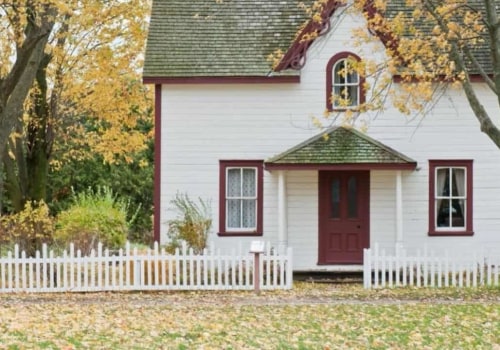Are you considering relocating to Alexandria VA? Moving can be an exciting yet stressful experience. Budgeting for the extra expenses associated with a move is key to making sure you have a smooth transition. One of the most important expenses to consider is budgeting for household expenses. Philadelphia local movers can help make the process easier and more affordable.
Budgeting for household expenses can seem daunting, but it doesn’t have to be. With a few simple steps, you can create a budget that fits within your means and helps you manage your finances. This article will provide an overview of how to budget for household expenses when relocating to Alexandria VA, from understanding your budget to creating a plan that works for you.
Creating a budget
for your household expenses is an important step in financial planning. It's a great way to make sure you have enough money to cover all of your necessary expenses and avoid financial stress.In order to effectively budget for your household expenses, you need to understand what those expenses are. Start by making a list of all the necessary expenses you have, such as rent or mortgage payments, utilities, groceries, car payments, insurance premiums, and loan payments. Then, make a list of all the non-essential expenses you have, such as eating out, entertainment costs, and other discretionary spending. Once you have a list of all your expenses, you can start to create your budget.
Start by setting limits on how much you can spend in each category. For example, if you usually spend $200 per month on groceries, you might set a limit of $150. This will help you stay within your budget and save money. Next, track your spending throughout the month to make sure you're staying within your budget. You can use a spreadsheet or budgeting app to help with this.
This will also help you identify areas where you may be overspending so you can adjust your budget accordingly. Finally, consider setting aside some money in an emergency fund. This will give you a cushion if you experience an unexpected expense or need to make an emergency purchase. These are just a few tips for creating a budget for your household expenses. With some planning and discipline, you can create a budget that works for your situation and helps you reach your financial goals.
Tips for Sticking to Your Budget
Creating a budget is only half the battle – sticking to it is the other half. Here are some tips for staying on track:Set realistic goals: Make sure the budget you create is realistic and achievable.Track your spending: Tracking your spending throughout the month will help you stay on top of your budget.
Avoid impulse purchases: Impulse purchases can quickly add up and derail your budget.
Make saving a priority: Make sure to set aside some money in an emergency fund and for long-term savings goals. Creating a budget for your household expenses is an essential part of managing your finances.
Knowing how much money you have available to spend on necessary expenses can help you avoid financial stress and achieve your financial goals. By following the tips outlined in this article, you can create a budget that is tailored to your needs and helps you stick to it. Budgeting for household expenses requires careful planning and tracking, but it is possible to create a budget that works for your situation. With some discipline and dedication, you can develop a budget that fits your lifestyle and helps you reach your financial goals.






